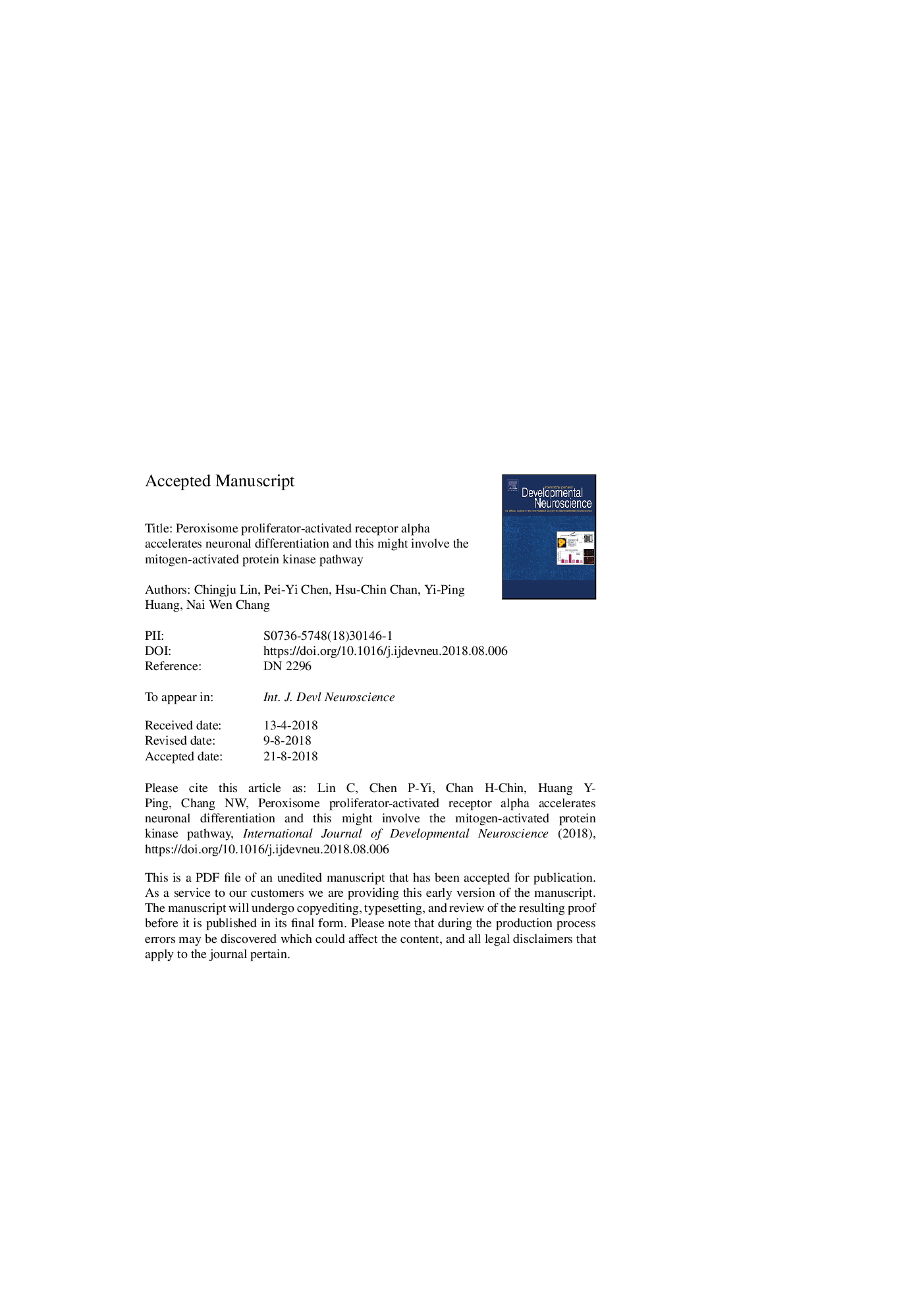| Article ID | Journal | Published Year | Pages | File Type |
|---|---|---|---|---|
| 9955249 | International Journal of Developmental Neuroscience | 2018 | 31 Pages |
Abstract
Activation of peroxisome proliferator-activated receptor alpha (PPARα) has been reported to modulate cell proliferation, migration, and differentiation in astrocytes. In this study, we used a retinoic acid (RA)-induced differentiation model of NTERA-2/clone D1 (NT2) cells to explore the functional significance of PPARαâin neuronal differentiation. We found that activating PPARα by Wy14643 accelerated neuronal differentiation via regulating the expression of neuronal markers. RT-PCR assays showed a significant increase in NeuroD expression and a decrease in nestin expression in cells treated concomitantly with RA and Wy14643 for 2 days compared to the levels in cells treated with RA alone. Expression of MAP2 protein, a mature neuronal marker, was markedly upregulated at day 10 of Wy14643 treatment, which was maintained after 21 days of neuronal formation. Corresponding to the changes in MAP2 expression, the expression of Cdk5 was upregulated with Wy14643 exposure from day 10 to day 21. Moreover, cells treated with Wy14643 displayed higher expression levels of phospho-ERK and phospho-p38 in the differentiation process than cell treated with RA alone. These results indicated that activation of PPARα accelerated neuronal differentiation through upregulating the expression of NeuroD, MAP2, and Cdk5 and downregulating the expression of nestin. MAPK signals, ERK and p38, might contribute to the accelerated differentiation process. These findings suggest that PPARα plays a role in regulating neuronal differentiation and may be beneficial for functional recovery from neurological disorders.
Keywords
Related Topics
Life Sciences
Biochemistry, Genetics and Molecular Biology
Developmental Biology
Authors
Chingju Lin, Pei-Yi Chen, Hsu-Chin Chan, Yi-Ping Huang, Nai Wen Chang,
